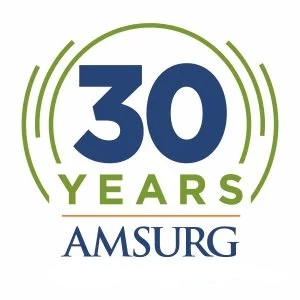Second chances aren’t a given, which is why Keith Lyons is determined to make the most of his.
“I’m a survivor. I got a second chance at life, and I’m not going to sit on it,” said Keith, an endoscopy technician at the Endoscopy Center of Red Bank, an AMSURG-affiliated ambulatory surgery center in New Jersey.
He is committed to helping others survive. In addition to raising awareness, he supports physicians in detecting and preventing colorectal cancer through colonoscopies at work.
As a teenager, he had an inflammatory bowel disease and didn’t like the thought of having to receive additional colonoscopies. Then, at 32, with the help of a trusted nurse and knowing the importance of his gastrointestinal health, he decided to get screened. That’s when he learned of his Stage 3 colon cancer diagnosis, which he has worked to overcome.
“It’s an everyday fight. I’m not going to lie. But I’m still here to fight because I chose to get myself checked out.”
Now 55, Keith continues to spread his message of survival, encouraging people to get screened and using his experience to break stigmas around colonoscopies.
“‘Colon cancer is preventable.’ That’s my slogan,” he said. “Please get checked.”




 AMSURG launched in 1992 as a pioneer in the ambulatory surgery center industry, originating a physician partnership model that endures today. Our original focus was endoscopy centers, but we quickly expanded to include ophthalmology, orthopedic and multi-specialty centers. Today, AMSURG is an industry innovator, advocate, and source for patients to find quality care in their communities.
AMSURG launched in 1992 as a pioneer in the ambulatory surgery center industry, originating a physician partnership model that endures today. Our original focus was endoscopy centers, but we quickly expanded to include ophthalmology, orthopedic and multi-specialty centers. Today, AMSURG is an industry innovator, advocate, and source for patients to find quality care in their communities.